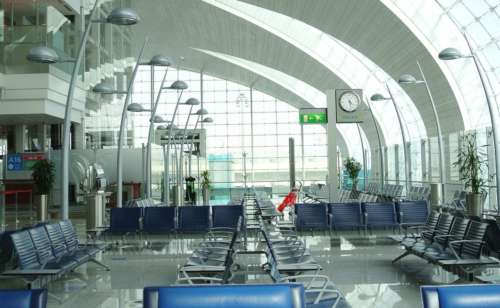
The COVID-19 pandemic is bringing Canadians’ travel plans to a halt, whether they were planning to go away for business or leisure, and the severe slowdown is likely to have lasting impacts on the entire industry, says a University of Guelph tourism sector expert.
Prof. Mark Holmes, School of Hospitality, Food and Tourism Management in the Gordon S. Lang School of Business and Economics, has just completed a survey on how COVID-19 has impacted Canadians’ travel plans.
The online poll of more than 1,000 Canadians, completed at the end of March along with Prof. Rachel Dodds from Ryerson University, found the pandemic had impacted more than 90 per cent of Canadians.
More than two thirds — 69.9 per cent — of respondents said their future travel plans had been strongly impacted by the virus. Those who travel for business were more likely to say they were strongly impacted than those who travel for leisure — 75.6 per cent versus 65.9 per cent, respectively.
“This is affecting every sector of the tourism economy, from the restaurant industry to the hotel and hospitality sector, to the travel sector,” Holmes said.

Canadians travelling for leisure said the pandemic had forced them to make changes because of safety concerns, layoffs, daycare closures and the need for physical distancing.
Business travellers cited many of the same reasons but added other reasons their travel plans had changed, including cancelled meetings, travel restrictions, suspension of business travel and a shift to working from home.
“While the reasons behind changes to business and leisure travellers’ plans are similar, they’re also different, and the extent to which each of their plans have changed is different,” Holmes said.
“What we know now as business travel might change as a whole after this, so this could have lasting impacts on the tourism industry.”
The survey also found differences between generations. A greater percentage of baby boomers (72.5 per cent) and Generation X Canadians (74.6 per cent) said their travel has been strongly impacted by COVID-19, compared to only 56.8 per cent of Generation-Z Canadians.
“It’s too early to speculate whether this will have lasting impacts after the pandemic settles, but it may take businesses some time to return to pre-COVID operations, if they can reopen at all,” he said.
“The longer this lasts, the more challenging it may be for travel and tourism businesses to survive and rebound.”
Holmes is available for interviews.
Contact:
Prof. Mark Holmes
mholme07@uoguelph.ca